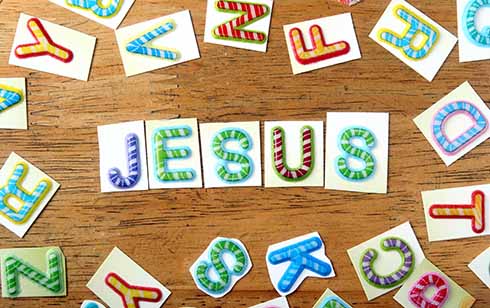 Despite the many difficulties of holding strong to the Catholic faith in these secular times, the best reason to be a religious educator is the children and their uncomplicated faith.
Despite the many difficulties of holding strong to the Catholic faith in these secular times, the best reason to be a religious educator is the children and their uncomplicated faith.
It’s a challenging time to be a Catholic. Our faith and the people who lead us in it are subject to an onslaught of negative attention. Many people hold a low opinion of our beliefs.
It is also be a challenging time to be a Catholic school teacher. We deal with children who state their parents’ disbelief in the middle of a Religion lesson, with unchurched families who are unaware of the basic tenets of Catholicism, and with the difficult questions that children need answered. We deal with cynics who wonder why anyone would put their children into Catholic education, assuming that it has more to do with a private school education than faith. We deal with criticisms of the Church being levelled at our vision and practices.
So why teach in a Catholic school?
Religious education is the first learning area in a Catholic school. It comes before literacy and numeracy, before any other learning area. It permeates every part of the school day.
Every child in a Catholic school sees, listens to and participates in a variety of faith-filled conversations and activities every day, including classes, prayer, meditation, liturgies and Masses. In a real way, Catholic education is an investment in the Catholic population of the future. It is an investment in future adults who are able to apply Christian beliefs to their daily lives.
The best reason to teach in a Catholic school, though, is not the investment. The best reason is, simply, the children. Their uncomplicated faith is a beacon to those who have the privilege of teaching. It enriches us daily, bolstering our own faith as we pass on the narratives and teachings of Jesus.
 Jesus our friend
Jesus our friend
Our class discussions about Jesus often revolve around the assumption that Jesus is a close, personal friend. The children relate to Him as though he is sitting on the playground with them. They are perfectly assured that Jesus wants to join in with them, regardless of what they are doing.
Children can teach us how to pray. A little girl, whose family is currently living under the shadow of serious illness, took part in our school Rosary with the stated belief that every prayer would work to directly help her Mum. She held tight to each bead and closed her eyes in concentration as she prayed, making sure that she contributed with all her heart.
Children give us many, many opportunities to experience the emotion and reality of the Gospel narratives through their eyes. When revisiting the Nativity story, we did some role plays to help deepen understanding of the events. One little girl, playing Mary at the Annunciation, jumped on the spot and danced to show the joy that she believed Mary must feel at having God's baby.
Joyful wonderment
We have some shining lights in the global Catholic community, strong and faithful leaders. We are blessed to have them. But mostly, we are blessed to have children who lead us in joyful wonderment at the stories and gifts of Jesus.
Bridget White is a teacher at Leschenault Catholic Primary School, WA.